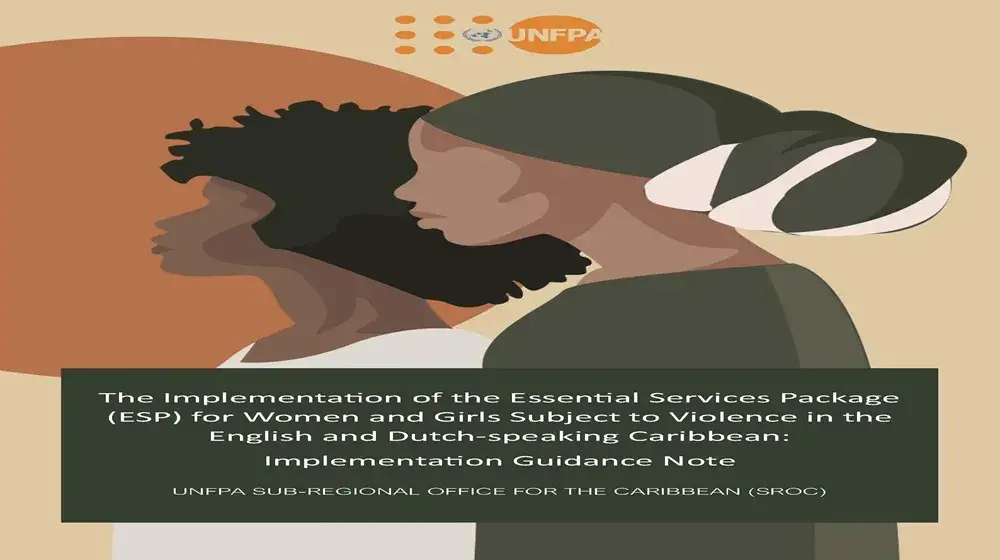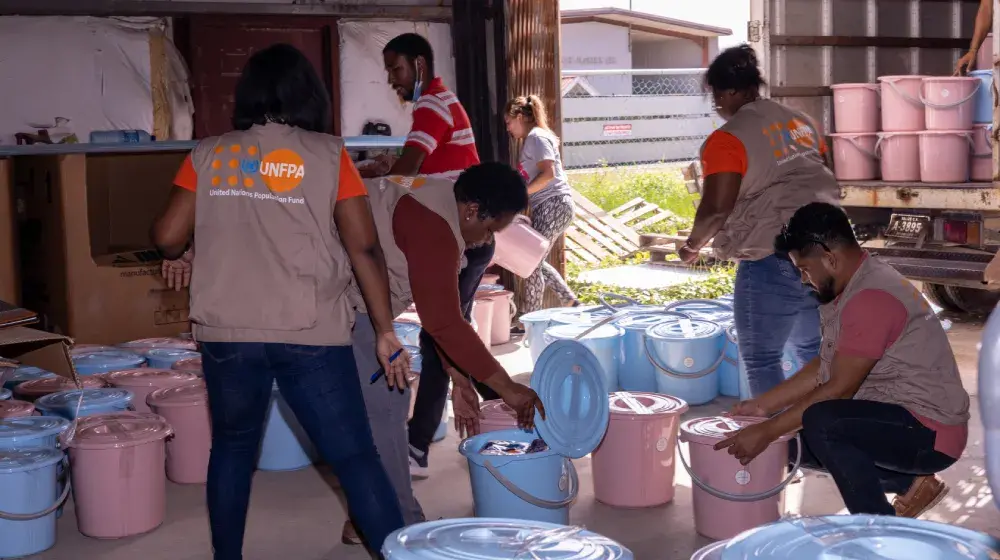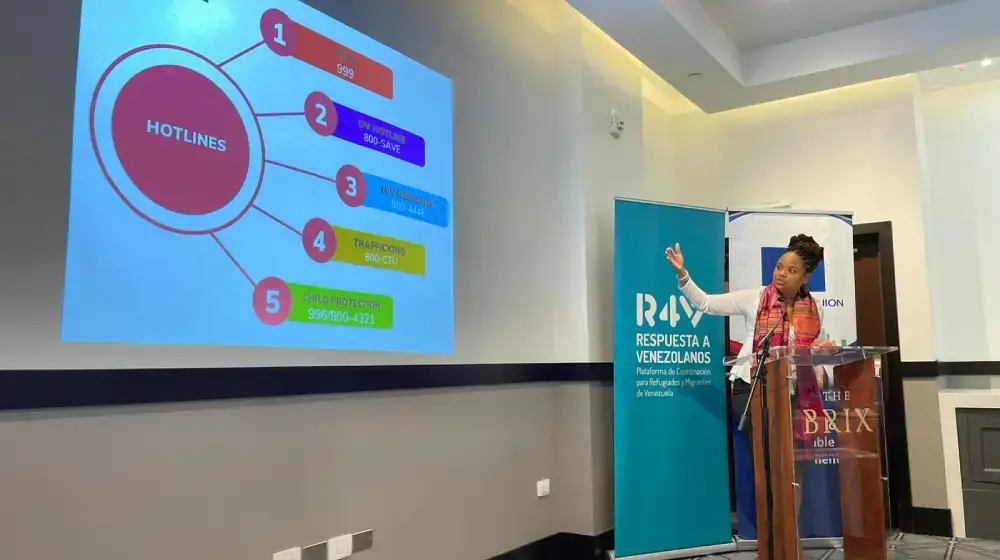When an emergency occurs, life can change in an instant. Natural disasters, conflict and violence can destroy homes and endanger the lives of thousands of people, forcing them to flee in search of safer places. In a matter of minutes, a human being can find himself devoid of his most basic necessities in life, such as shelter, water, food, clothing, basic hygiene supplies or medicines. During these situations, access to health services is difficult, since they are damaged, destroyed or become inaccessible; maternal deaths and sexual violence are increasing and reproductive health services, including care during pregnancy and childbirth, are in short supply. In times of humanitarian crisis, UNFPA has a crucial role to implement, quickly and effectively, measures to safeguard the lives of affected people, focusing our attention on the most vulnerable groups, mainly women and adolescent girls.
The Caribbean is prone to natural disasters, and throughout 2020 and into 2021 the region has been coping with four major humanitarian challenges at once: the Venezuelan migrant and refugee crisis impacting four countries (Guyana, Trinidad and Tobago, Aruba and Curacao); an above-average Atlantic hurricane season putting 16 out of 22 countries and territories at risk; a volcano eruption in Saint Vincent and the Grenadines; and the COVID-19 pandemic. It is well documented that often during crises, needs for SRH services are overlooked and incidents of GBV increase. Women and girls’ vulnerability to GBV increases due to disrupted services, decreased privacy, weakened social support and family systems, and social norms that restrict safety and mobility. The need for SRH services remains and may even increase, and a lack of access to family planning services can increase unplanned pregnancies, especially among adolescent girls. Lack of access to delivery care including basic and comprehensive emergency obstetric care can increase the risk of maternal and new-born complications and deaths. Furthermore, an increased risk of sexual violence during emergencies is associated with an increased risk of contracting HIV and other sexually transmitted infections (STIs). Access to the Minimum Initial Service Package (MISP) for SRH care, prevention.
UNFPA is part of the group of United Nations agencies, which when a state of emergency is declared, go into action, forming a humanitarian response network, whose objective is to work hand in hand to bring assistance to those who are in conditions of emergency. greater vulnerability. UNFPA is part of the Inter-Institutional Standing Committee (IASC) and leads the area of responsibility of Gender-based Violence
UNFPA's humanitarian response to emergencies in Latin America and the Caribbean consists of:
Minimum sexual and reproductive health services in the face of a disaster situation - During emergencies, UNFPA contributes to improving all aspects of maternal health, protecting women, girls and adolescents from sexual violence, and preventing sexually transmitted infections, including HIV.
Provide responses to basic needs in emergency contexts - Provide support to the countries of the region, in order to strengthen capacities and mechanisms to guarantee safety and health, especially women, adolescents and young people; Likewise, UNFPA provides kits that are culturally sensitive, designed in conjunction with affected communities, mainly women, to safeguard and protect their dignity and cover their basic needs after an emergency.
Working with Youth and Adolescents - Youth are also affected by emergencies in a different way. The lack of family and community protection and support makes youth more vulnerable to violence, sexual abuse and exploitation, as well as to sexually transmitted infections and HIV. UNFPA helps address the specific needs of youth in crisis and builds partnerships to engage them in emergency response.





